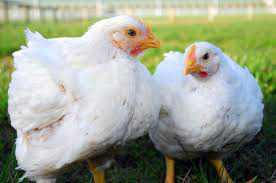Phytase shows most improvement in maize based diets

In different types of grain diets for broilers, phytase has a positive effect on zootechnical parameters. However, the effect in maize based diets was a bit better than the other diets.
The study used 288 male Ross 308 chicks (6 treatments with 8 replicate cages of 6 birds). Birds were offered steam-pelleted diets based on maize, sorghum or wheat, without or with phytase supplementation, from 7 to 27 days post-hatch. Experimental diets were formulated to be equivalent for energy, protein/amino acids and were P-adequate.
Digesta samples from proximal jejunum, distal jejunum, proximal ileum and distal ileum were collected in their entirety at day 27. Digestion rates of starch and protein were determined by fitting exponential mathematical model to apparent digestibility coefficients with mean retention times in each small intestinal segment. The growth performance of birds offered maize and sorghum were comparable but those offered wheat-based diets were inferior.
Phytase improved weight gain (P<0.001), feed intake (P<0.001) and feed conversion (P<0.05) in maize-, sorghum- and wheat- based diets, although the most pronounced improvements tended to be for maize. There were grain type-phytase interactions (P<0.01) for nutrient utilization (AME, N retention, AMEn) where substantial phytase responses were observed for maize but not for sorghum- and wheat-based diets. Phytase did not influence digestion rates of starch and protein (P>0.05), but it significantly increased disappearance rates of starch in maize-based diets (P<0.05).
In conclusion, phytase improved weight gain and feed conversion efficiency in maize-, sorghum- and wheat-based diets with more pronounced response in maize-based diets. Moreover, phytase also significantly enhanced nutrient utilization in maize-based diets.
[Source: Science Direct]












